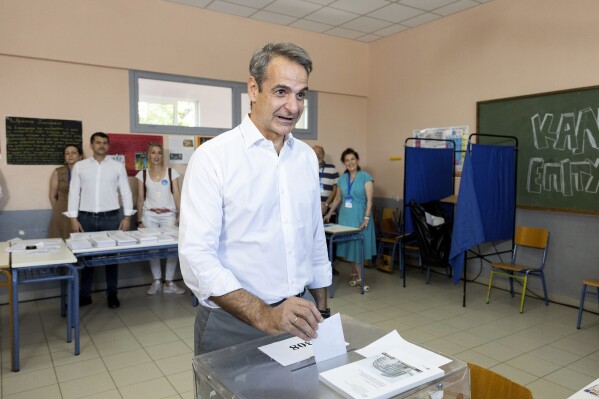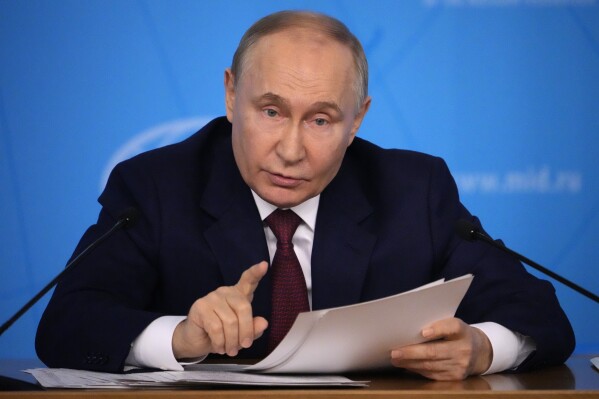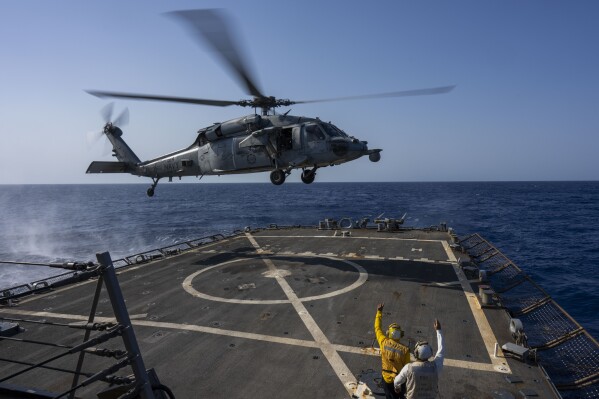Russia's Cuba Flotilla Visit Is 'Cheap Blackmail': Ukraine Deputy
A leading Ukrainian lawmaker has dismissed the visit of a Russian naval flotilla to Cuba this week as "cheap blackmail" on the part of President Vladimir Putin. He said it was an effort to project Russian power that in fact exhibits Moscow's limitations.
Four Russian vessels—including the Admiral Gorshkov frigate and the Kazan nuclear-powered submarine—docked in Havana this week, in what has been perceived as a Russian response to deepening NATO commitment in Ukraine.
U.S. officials have said the visit poses no security threat, though American naval assets shadowed the group as the vessels passed the Atlantic coastline on their way to the Caribbean.
Yehor Cherniev—a member of the Ukrainian Parliament and the deputy head of its national security, defense and intelligence committee—told Newsweek on Thursday that Russia was trying to "show power without having this power." Moscow was attempting to echo Soviet Union regional influence that so unsettled the U.S. and prompted the Cuban missile crisis of 1962.
"They probably tried to repeat the Caribbean crisis with their ships," Cherniev said, referring to the historic standoff considered one of the most dangerous moments of the Cold War. "I think it's a full attempt to convince the U.S. that Russia is the same as the USSR was in 1962, which was a really powerful country at that time.
"But we even cannot compare Russia now and the USSR in 1962," Cherniev added. "I think it's cheap blackmail, just trying to convince partners to stop supporting Ukraine, or at least to not increase their aid, or increase the steps that can give us more power, like the permission to strike on the territory of Russia."
Newsweek has contacted the Russian Foreign Ministry by email to request comment.
President Vladimir Putin hinted at consequences for NATO nations that have given Ukraine the green light to use Western weapons within Russian borders.
"In the end, if we see that these countries become involved in a war against us, what they are doing makes them directly involved in a war against the Russian Federation, we reserve the right to act the same way," the Russian leader said.
Moscow, Putin said, "will improve our air defense systems to destroy the missiles." He asked why Russia should "not have the right to supply our weapons of the same class to those regions of the world where there will be strikes on the sensitive facilities of those countries that are doing this against Russia?"
However, the U.S. is downplaying any sense of threat. A State Department spokesperson told Newsweek that the U.S. anticipates "heightened naval and air activity near the United States" this summer.
"These actions will culminate in a global Russian naval exercise this fall," the spokesperson added. "Russia will temporarily send combat naval vessels to the Caribbean region, and these ships will likely conduct port calls in Cuba and possibly Venezuela.
"There may also be some aircraft deployments or flights in the region. Russia's deployments are part of routine naval activity, and we are not concerned by Russia's deployments, which pose no direct threat to the United States."
Disclaimer: The copyright of this article belongs to the original author. Reposting this article is solely for the purpose of information dissemination and does not constitute any investment advice. If there is any infringement, please contact us immediately. We will make corrections or deletions as necessary. Thank you.


